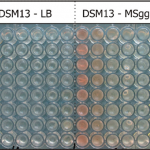ecosystems
If there is anything that the past few decades of research and study of major global challenges tells us, it is that truly effective solutions to sustainability challenges require truly integrated approaches across disciplines, fields of study, data sets, and institutions. We are not going to solve 21st century global problems with 20th century tools.
The planet is faced with a wide range of regional and global threats: air and water pollution, loss of biodiversity, a rapidly changing climate and new risks from extreme weather events, energy and food security, conflicts over resources…
In the past few weeks, I have had been asked the same question by reporters, friends, strangers, and even a colleague who posts regularly on this very ScienceBlogs site (the prolific and thoughtful Greg Laden): why, if the California drought is so bad, has the response been so tepid?
There is no single answer to this question (and of course, it presumes (1) that the drought is bad; and (2) the response has been tepid). In many ways, the response is as complicated as California’s water system itself, with widely and wildly diverse sources of water, uses of water, prices and water rights,…
Figure 1: Monthly average precipitation showing the seasonality of precipitation in different parts of California, from the iconic California Water Atlas.
California has a “Mediterranean” climate, which means that each year it has a concentrated rainy season, followed by a long temperate and dry period. California’s rainy season typically runs from early October to late March, with very little precipitation outside of these months. (Figure 1 shows the average monthly rainfall for California.) It is now early 2014 and the rains have not come, for the third year in a row. While the …
There is a very interesting article on Nature.com that provides an example of something a bit uncommon in the climate wars: an intelligent and well reasoned disagreement with the IPCC. (h/t to Climate Etc.)
The article is well worth the read in its entirety, but its central point is a relatively straightforward one. The smaller the portion of the earth's surface (or time period for that matter) you are examining, the more difficult and less useful it is to consider attribution of climate change. And yet, the IPCC, according to this article, is seeking research that specifically attributes…
Cells are constantly jibber jabbering, sending messages to each other to coordinate behavior, both within a population of single-celled organisms or between cells of an individual multicellular organism. Most of these signals are chemicals that float around in the liquid that surrounds the cells but there recently has been an increased appreciation for cells' sense of "smell"--how cells respond to chemicals that are present as gasses.
A brand new paper outlines the discovery of "olfaction" in a species of bacteria, Bacillus licheniformis. Trying to save space on a 96 well dish by putting…
Driving home with the Free-Ride offspring yesterday, we heard a story on the radio that caught out attention. (The radio story discusses newly published research that's featured on the cover of Nature this week.) When we got home, we had a chat about it.
Dr. Free-Ride: What did you guys learn from that story on the radio about the yellow-bellied marmot?
Elder offspring: That, in the short term, climate change is good for some species.
Dr. Free-Ride: Tell me more about that.
Elder offspring: Well, it made the marmots increase in size and numbers.
Elder offspring: I was going to say that!
.…
tags: biodiversity, conservation, endangered species, Encyclopedia of Life, TEDTalks, E.O. Wilson, streaming video
As E.O. Wilson accepts his 2007 TEDTalks Prize, he makes a plea on behalf of all creatures that we learn more about our biosphere -- and build a networked encyclopedia of all the world's knowledge about life [24:22]
TEDTalks is a daily video podcast of the best talks and performances from the TED Conference, where the world's leading thinkers and doers are invited to give the talk of their lives in 18 minutes.
tags: oceans, shrimp farming, fish, streaming video
Gorgeous imagery of the planet's many oceans, interspersed with footage of humans overexpoiting them. Narrated by British actor Anthony May. Brought to you by GreenPeace [15:51]
